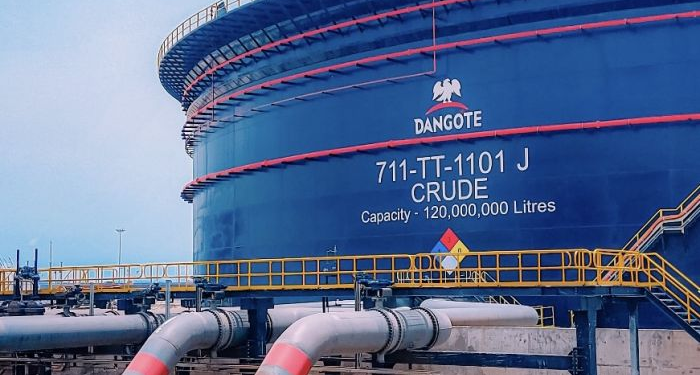The Dangote Refinery has firmly defended its petroleum pricing, countering accusations from the Independent Petroleum Marketers Association of Nigeria (IPMAN) and the Petroleum Retail Outlet Owners Association of Nigeria (PETROAN) about inflated fuel prices. In a recent statement, the refinery asserted that its pricing aligns with international standards and questioned the quality of cheaper imported alternatives.
Responding through the company’s Group Chief Branding and Communications Officer, Anthony Chiejina, the refinery implied that IPMAN and PETROAN’s claims of offering cheaper products could indicate that they are importing substandard fuel.
“We had lately refrained from engaging in media fights,” Chiejina stated, “but we are constrained to respond to the recent misinformation being circulated by IPMAN, PETROAN, and other associations. Both organisations claim that they can import PMS at lower prices than what is being sold by the Dangote Refinery.”

Chiejina stated that Dangote’s rates are “benchmarked against international prices” and described them as competitive. He added, “If anyone claims they can land PMS at a price cheaper than what we are selling, then they are importing substandard products and conniving with international traders to dump low-quality products into the country, without concern for the health of Nigerians or the longevity of their vehicles.”
The statement further highlighted that Nigeria’s regulatory body, the Nigerian Midstream and Downstream Petroleum Regulatory Authority (NMDPRA), lacks sufficient laboratory facilities to detect substandard imports.
The refinery disclosed its adjusted PMS prices to support the market, offering N960 per litre for ship sales and N990 per litre for trucks, rates reportedly lower than those set by the Nigerian National Petroleum Corporation (NNPC), which stand at N971 for ship sales and N990 for trucks. “In good faith, and in the interest of the country, we commenced sales at these prices without clarity on the exchange rate that we will use to pay for the crude purchased,” Chiejina noted.
Concerns were also raised about an international trading company recently acquiring a depot near the Dangote Refinery, allegedly to blend and distribute substandard products. “This is detrimental to the growth of domestic refining in Nigeria,” Chiejina warned, urging for protective measures similar to those in the US and Europe, where governments implement tariffs to safeguard domestic industries.
Affirming its commitment to providing “affordable, good quality, domestically refined petroleum products in Nigeria,” Dangote called on Nigerians to “disregard the deliberate disinformation being circulated by agents of people who prefer for us to continue to export jobs and import poverty.”


